In 2015, the big data competition was jointly organized by Baidu and Xi’an Jiaotong University, aiming to encourage talented individuals to solve problems via AI technology. In 2019, the competition was evolved into an international event after Baidu has cooperated with the International Knowledge Centre for Engineering Sciences and Technology under the auspices of UNESCO (IKCEST), Xi’an Jiaotong University, the University Alliance of the Silk Road, and the China Knowledge Centre for Engineering Sciences and Technology (CKCEST).
On August 10, 2022, the 4th IKCEST “Belt and Road” International Big Data Competition and the 8th Baidu & Xi’an Jiaotong University Big Data Competition (International Big Data Competition) was officially launched. Themed on Translation between Chinese and French, Russian, Thai and Arabic along The Belt and Road centering on Machine Translation for Low-Resource Languages, the competition focuses on the translation between Chinese and French, Russian, Thai and Arabic. This breaks through the international machine translation evaluation practice focusing on English, and aims to encourage youth to undertake low-resource machine translation tasks to integrate into the construction of The Belt and Road Initiative.
Tian Qi, Director of the Department of the International Cooperation of the Chinese Academy of Engineering (CAE) and Executive Deputy Director of IKCEST, pointed out that the competition is of great importance to improve the quality of machine translation for key languages along The Belt and Road. He also hopes that more and more young talents can provide new impetus for international communication. Narayanaswamy Balakrishnan, Member of the Indian National Science Academy (INSA ) and Member of Governing Board of the IKCEST noted that the competition makes people step closer to the human-like machine translation. Reviewing the previous sessions, Professor Zheng Qinghua, Executive Vice President of Xi’an Jiaotong University, outlined the competition as Three Leaps: leap from home to abroad, leap from dozens of universities and colleges to ten thousands of them, leap from AI big data algorithm to multiple algorithms.
The competition takes BLEU as the criteria, the mainstream one for machine translation. In the preliminary session, participants will get 100,000 sentences as the training data in Chinese-French, Chinese-Russian and Chinese-Thai respectively, while 50,000 sentences in Chinese-Arabic in the semi-final session. The top 16 teams in the semi-final session will enter the final offline.
Original Text (This is the original text for your reference.)
In 2015, the big data competition was jointly organized by Baidu and Xi’an Jiaotong University, aiming to encourage talented individuals to solve problems via AI technology. In 2019, the competition was evolved into an international event after Baidu has cooperated with the International Knowledge Centre for Engineering Sciences and Technology under the auspices of UNESCO (IKCEST), Xi’an Jiaotong University, the University Alliance of the Silk Road, and the China Knowledge Centre for Engineering Sciences and Technology (CKCEST).
On August 10, 2022, the 4th IKCEST “Belt and Road” International Big Data Competition and the 8th Baidu & Xi’an Jiaotong University Big Data Competition (International Big Data Competition) was officially launched. Themed on Translation between Chinese and French, Russian, Thai and Arabic along The Belt and Road centering on Machine Translation for Low-Resource Languages, the competition focuses on the translation between Chinese and French, Russian, Thai and Arabic. This breaks through the international machine translation evaluation practice focusing on English, and aims to encourage youth to undertake low-resource machine translation tasks to integrate into the construction of The Belt and Road Initiative.
Tian Qi, Director of the Department of the International Cooperation of the Chinese Academy of Engineering (CAE) and Executive Deputy Director of IKCEST, pointed out that the competition is of great importance to improve the quality of machine translation for key languages along The Belt and Road. He also hopes that more and more young talents can provide new impetus for international communication. Narayanaswamy Balakrishnan, Member of the Indian National Science Academy (INSA ) and Member of Governing Board of the IKCEST noted that the competition makes people step closer to the human-like machine translation. Reviewing the previous sessions, Professor Zheng Qinghua, Executive Vice President of Xi’an Jiaotong University, outlined the competition as Three Leaps: leap from home to abroad, leap from dozens of universities and colleges to ten thousands of them, leap from AI big data algorithm to multiple algorithms.
The competition takes BLEU as the criteria, the mainstream one for machine translation. In the preliminary session, participants will get 100,000 sentences as the training data in Chinese-French, Chinese-Russian and Chinese-Thai respectively, while 50,000 sentences in Chinese-Arabic in the semi-final session. The top 16 teams in the semi-final session will enter the final offline.








 User Center
User Center My Training Class
My Training Class Feedback
Feedback












Comments
Something to say?
Login or Sign up for free